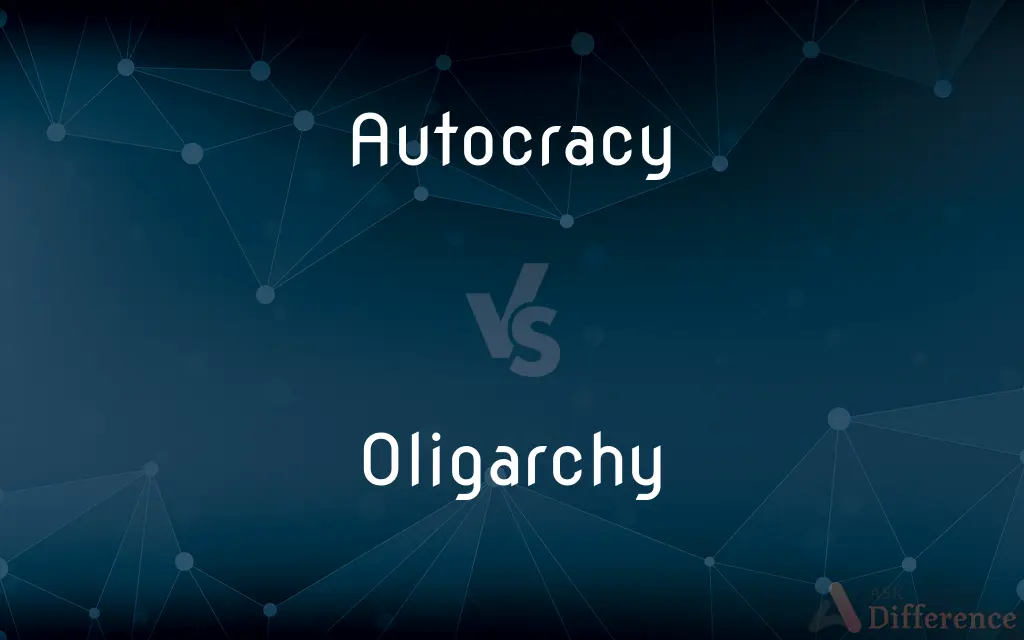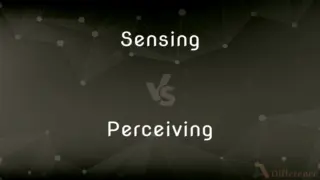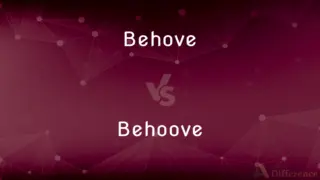Autocracy vs. Oligarchy — What's the Difference?
By Tayyaba Rehman & Maham Liaqat — Updated on March 25, 2024
Autocracy centers power in a single ruler; oligarchy distributes it among a few elites, differing in the concentration of authority.

Difference Between Autocracy and Oligarchy
Table of Contents
ADVERTISEMENT
Key Differences
Autocracy is a form of government where all power resides with a single individual, making decisions without external constraints or checks. This ruler, whether a monarch, dictator, or emperor, exercises sole authority over the state's affairs, often for life. On the other hand, an oligarchy is a government ruled by a small group of people, typically from the same social, economic, or political elite. In an oligarchy, power is concentrated among a few individuals or families, who govern based on their interests, possibly at the expense of the broader population.
While autocracy centralizes decision-making in one person, providing clear leadership but risking tyranny and oppression, oligarchy disperses power among a few, which can lead to conflicts of interest and a lack of representation for the general populace. Both systems can limit political pluralism and public participation, but the dynamics of power and governance differ significantly between them.
In terms of political stability, autocracies might offer a semblance of stability as long as the autocrat remains in control, but they can face significant turmoil during transitions of power. Oligarchies, by contrast, might have more mechanisms for internal power shifts without public upheaval, as the ruling elite negotiate among themselves, although this can lead to factionalism and internal strife.
Autocracies and oligarchies can both foster environments where economic policies heavily favor the ruling individual or elite, potentially leading to significant inequalities. However, oligarchies are particularly known for entrenching economic disparities, as the governing few often prioritize their wealth and power over national economic development or equitable wealth distribution.
Public perception and resistance can differ; autocracies may face opposition focused on the singular figure of the autocrat, while in oligarchies, resentment might be directed at the broader elite class. Movements for democratic reform can emerge under both systems, motivated by the lack of political freedom and socioeconomic disparities.
ADVERTISEMENT
Both governance forms contrast with democracies, where power theoretically lies with the population at large. The comparison between autocracy and oligarchy highlights the nuances in how power is concentrated and exercised, impacting everything from policy-making to social justice.
Comparison Chart
Definition
Government by a single person with absolute power.
Government by a small group of people with shared interests.
Power Concentration
Centralized in one individual.
Distributed among a few elites.
Leadership Duration
Often for life or until abdication.
Can be for life but is subject to internal dynamics.
Political Stability
Can be stable but faces turmoil during power transitions.
Potentially more adaptable but prone to factionalism.
Economic Policy
Can favor the ruler’s interests, leading to disparities.
Often benefits the elite, exacerbating inequalities.
Public Perception
Opposition focused on the singular ruler.
Resentment directed at the elite class.
Example
Traditional monarchies, dictatorships.
Aristocracies, plutocracies.
Compare with Definitions
Autocracy
A system where one person holds all the power.
The autocracy was evident as the dictator made decisions without consulting others.
Oligarchy
May offer more political stability than autocracy.
Despite its flaws, the oligarchy managed a consistent economic policy.
Autocracy
Risks include tyranny and oppression.
The autocracy fell into disrepute due to the ruler's oppressive tactics.
Oligarchy
Power struggles within the elite can occur.
The oligarchy faced instability due to internal disagreements.
Autocracy
Can lead to efficient decision-making.
The autocrat swiftly enacted policies without legislative hurdles.
Oligarchy
Rule by a small group of elite individuals or families.
The oligarchy maintained power through wealth and social connections.
Autocracy
Leadership often passes through inheritance or coup.
The kingdom's autocracy had been in the family for generations.
Oligarchy
Often associated with economic disparities.
The oligarchy controlled most of the country's wealth, leaving many in poverty.
Autocracy
Characterized by lack of political competition.
In an autocracy, opposition parties were banned.
Oligarchy
Can emerge in various systems, including democracies.
Critics argue that the nation's democracy has veered towards oligarchy.
Autocracy
Autocracy is a system of government in which supreme power over a state is concentrated in the hands of one person, whose decisions are subject to neither external legal restraints nor regularized mechanisms of popular control (except perhaps for the implicit threat of coup d'état or other forms of rebellion).In earlier times, the term autocrat was coined as a favorable description of a ruler, having some connection to the concept of "lack of conflicts of interests" as well as an indication of grandeur and power. This use of the term continued into modern times, as the Russian Emperor was styled "Autocrat of all the Russias" as late as the early 20th century.
Oligarchy
Oligarchy (from Greek ὀλιγαρχία (oligarkhía); from ὀλίγος (olígos) 'few', and ἄρχω (arkho) 'to rule or to command') is a form of power structure in which power rests with a small number of people. These people may or may not be distinguished by one or several characteristics, such as nobility, fame, wealth, education, corporate, religious, political, or military control.
Autocracy
Government by a single person having unlimited power; despotism.
Oligarchy
Government by a few, especially by a small faction of persons or families.
Autocracy
A country or state that is governed by a single person with unlimited power.
Oligarchy
Those making up such a government.
Autocracy
(uncountable) A form of government in which unlimited power is held by a single individual.
Oligarchy
A state governed by a few persons.
Autocracy
(countable) An instance of this government.
Oligarchy
A government run by only a few, often the wealthy.
Autocracy
Independent or self-derived power; absolute or controlling authority; supremacy.
The divine will moves, not by the external impulse or inclination of objects, but determines itself by an absolute autocracy.
Oligarchy
Those who make up an oligarchic government.
Autocracy
Supreme, uncontrolled, unlimited authority, or right of governing in a single person, as of an autocrat.
Oligarchy
A state ruled by such a government.
Autocracy
Political independence or absolute sovereignty (of a state); autonomy.
Oligarchy
A form of government in which the supreme power is placed in the hands of a few persons; also, those who form the ruling few.
All oligarchies, wherein a few men domineer, do what they list.
Autocracy
The action of the vital principle, or of the instinctive powers, toward the preservation of the individual; also, the vital principle.
Oligarchy
A political system governed by a few people
Autocracy
A political system governed by a single individual
Autocracy
A political theory favoring unlimited authority by a single individual
Common Curiosities
What are the main risks of autocracy?
The main risks include tyranny, oppression, and lack of accountability, leading to potential abuses of power.
How can oligarchies impact economic policies?
Oligarchies often enact policies that benefit the elite, potentially leading to significant economic inequalities.
What is an autocracy?
An autocracy is a system of government in which all power is concentrated in the hands of a single individual.
Can oligarchies be stable forms of government?
While potentially more adaptable than autocracies, oligarchies can suffer from internal factionalism and lack of popular support.
How does international perception vary between autocracies and oligarchies?
International perceptions can vary, with autocracies often criticized for lack of freedom, while oligarchies might be seen as more complex due to their internal dynamics and façade of inclusivity.
Is it possible for an autocracy to transition to an oligarchy?
Yes, transitions can occur, especially during power vacuums or through reforms that redistribute power among an elite class.
What motivates reforms in autocratic and oligarchic systems?
Reforms are often motivated by internal pressures, economic needs, or demands for greater political freedom and equity.
How do autocracies and oligarchies compare in their approach to governance?
Autocracies centralize decision-making in one person, while oligarchies distribute power among a few, leading to different governance dynamics.
Can an oligarchy have democratic elements?
Yes, oligarchies can coexist with democratic elements, but the real power rests with a select few, limiting true democratic participation.
Are autocracies more efficient than oligarchies?
Autocracies can enact policies more swiftly due to centralized decision-making, but this efficiency may come at the cost of broader societal needs and freedoms.
How does an oligarchy differ from an autocracy?
In an oligarchy, power is held by a small group of elites, unlike in an autocracy, where a single person holds all the power.
How does public perception differ between autocracies and oligarchies?
In autocracies, opposition tends to focus on the ruler, while in oligarchies, it targets the broader elite class.
What challenges do citizens face under oligarchies?
Citizens may face limited political influence, economic disparities, and a lack of social mobility due to the elite's control.
Share Your Discovery

Previous Comparison
Sensing vs. Perceiving
Next Comparison
Behove vs. BehooveAuthor Spotlight
Written by
Tayyaba RehmanTayyaba Rehman is a distinguished writer, currently serving as a primary contributor to askdifference.com. As a researcher in semantics and etymology, Tayyaba's passion for the complexity of languages and their distinctions has found a perfect home on the platform. Tayyaba delves into the intricacies of language, distinguishing between commonly confused words and phrases, thereby providing clarity for readers worldwide.
Co-written by
Maham Liaqat













































